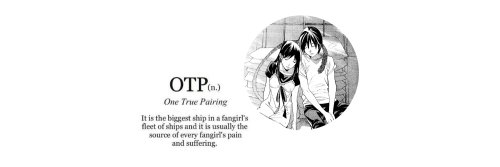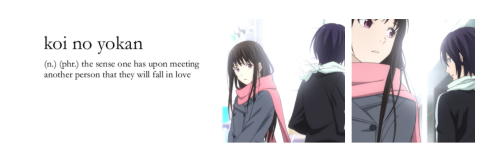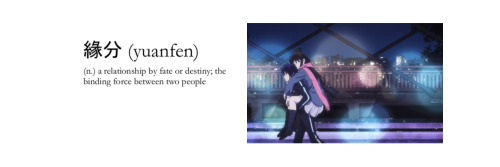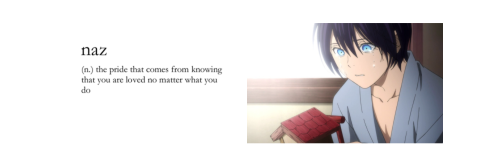#word definition
Adjective
[ ep-i-kyoo-ree-uhn, -kyoor-ee- ]
1. fond of or adapted to luxury or indulgence in sensual pleasures; having luxurious tastes or habits, especially in eating and drinking.
Origin:
Epicurean “fond of or adapted to luxury or indulgence in sensual pleasures” derives via Middle English from Latin Epicūrēus “of Epicurus.” Epicurus (in the original Ancient Greek, Epíkouros) was a philosopher of Athenian origin who flourished in the late 4th and early 3rd centuries BC, and his school of thought, Epicureanism, had as its foundation the belief that pleasure was most important. The name Epicurus comes from the Ancient Greek adjective epíkouros “assisting,” which also functions as a noun meaning “ally, helper.” Epicurean was first recorded in English in the late 1300s.
“Sometimes I have thought it would be an excellent rule to live each day as if we should die tomorrow …. with a gentleness, a vigor, and a keenness of appreciation which are often lost when time stretches before us in the constant panorama of more days and months and years to come. There are those, of course, who would adopt the epicurean motto of ‘Eat, drink, and be merry,’ but most people would be chastened by the certainty of impending death.”
- HELEN KELLER, “THREE DAYS TO SEE,” THE ATLANTIC, JANUARY 1933
Noun
[per-i-loon ]
1. the point in a lunar orbit that is nearest to the moon.
Origin:
Perilune “the point in a lunar orbit that is nearest to the moon” is a compound of the combining form peri- “about, around, near” and the element -lune“moon.”Peri-, from Ancient Greek perí “about, around,” is a common fixture in words related to closeness, such as perimeterandperiphery, and in perilune, it is combined with -lune on the pattern of perigee “the point in an orbit that is nearest to the earth” (using Ancient Greek gaîaorgê “earth”). Unlike perigee,perilune features a Latin-origin element, -lune (from Latin lūna) to mean “moon”; if this element were derived instead from Ancient Greek selḗnē “moon” to better match perigee, we would be saying something like “periselene” instead! Perilune was first recorded in English in the late 1950s.
“Since arriving at the Moon on 4 April, Beresheet has slowly lowered its orbit with a series of engine burns. On Tuesday, it circularized its orbit to an altitude of just 200 kilometers, and following a burn Wednesday, Beresheet dropped the perilune, or low point of its orbit, to just 15 kilometers over its eventual landing site in Mare Serenitatis.”
- JASON DAVIS, “BERESHEET IS ABOUT TO LAND ON THE MOON,” PLANETARY SOCIETY, APRIL 10, 2019
Adjective
[niv-ee-uhs ]
1. resembling snow, especially in whiteness; snowy.
Origin:
1615–25; <Latin niveus snowy, snow-white, of, from snow, equivalent to niv- (stem of nix) snow + -eus -eous
“So Cinaber becomes red by the acide exhalation of sulphur, which otherwise presents a pure and niveous white.“
- Thomas Browne, The Works of Sir Thomas Browne (Volume 2 of 3)
Adjective
[chok-uh-blok]
1. extremely full; crowded; jammed:
a room chockablock with furniture and plants.
2.Nautical.having the blocks drawn close together, as when the tackle is hauled to the utmost.
Adverb
3. in a crowded manner:
books piled chockablock on the narrow shelf.
Origin:
cf.chock close (up to), apparently as back formation from chock-full
“Quickly the enemy submarine maneuvered closer until the two craft 135 were almost chockablock.”
- VICTOR APPLETON, TOM SWIFT AND THE VISITOR FROM PLANET X
Adjective
[rav-uh-nuhs ]
1. extremely hungry; famished; voracious.
Origin:
Ravenous “extremely hungry” is a borrowing from Old French that derives ultimately from the Latin noun rapīna “plunder, robbery, pillage”; the sense shifted in Old French from “plunder” to describe people who are likely to plunder and then to the associated personality traits of plunderers, such as “violent” and “greedy,” and eventually came to mean “hungry.” Rapīna comes from the verb rapere “to seize,” which is the source of words such as rapacious,rapid, rapt, ravish, surreptitious, and usurp. A common misconception is that ravenous is related to raven, the black-feathered bird, but raven is of Germanic origin, from Old English hrǣfn, and may be a distant relative of Latin corvus “raven” and Ancient Greek kórax “raven, crow.” (In addition, despite the similar spelling and meaning, crow is not related to corvus—though crows and ravens are part of the genus Corvus.) Ravenous was first recorded in English in the late 1300s.
“Locusts are ravenous eaters. An adult desert locust that weighs about 2 grams (a fraction of an ounce) can consume roughly its own weight daily. And they’re not picky at all.”
- PRANAV BASKAR, “LOCUSTS ARE A PLAGUE OF BIBLICAL SCOPE IN 2020. WHY? AND … WHAT ARE THEY EXACTLY?” NPR, JUNE 14, 2020
Adjective
[ del-i-teer-ee-uhs ]
1. injurious to health:
deleterious gases.
2. harmful; injurious:
deleterious influences.
Origin:
1635–45; <Greek dēlētḗrios destructive, adj. derivative of dēlētḗr destroyer, equivalent to dēlē- variant stem of dēleîsthai to hurt, injure + -tēr agent suffix + -ios adj. suffix; see -ious
“Drugs are becoming more powerful with prescription painkillers used to enhance effect and prolong a deleterious pleasure.”
- DR. ANAND VEERAVAGU, MD, ROBERT M. LOBER, MD, PHD, HEROIN: AMERICA’S SILENT ASSASSIN
Noun
[sahy-uhn ]
1. a descendant.
2. Also ci·on . a shoot or twig, especially one cut for grafting or planting; a cutting.
Origin:
First recorded in 1275–1325; Middle English: “shoot, twig” <Old French cion, from Frankishkī- (unattested); (compare Old English cīnan, Old Saxon kīnan, Old High German chīnan “to sprout,” Old English cīth, Old Saxon kīth “sprout”) + Old French-on noun suffix
“Doctor Bataille, poor man, is the scion of an ordinary ancestry within the narrow limits of flesh and blood.”
- ARTHUR EDWARD WAITE, DEVIL-WORSHIP IN FRANCE
Noun
[ mey-lahnzh, -lahnj]
1. a mixture; medley.
Origin:
1645–55; <French; Old French meslance, equivalent to mesl(er)tomix(seemeddle) + -ance noun suffix ≪ Germanic -ingō-ing1
“The whole thing is a strange melange of official business and dying gossip!”
- RICHARD HENRY SAVAGE, A FASCINATING TRAITOR
Verb (used with object)
[ dih-ras-uh-neyt ]
1. to pull up by the roots; uproot; extirpate; eradicate.
2. to isolate or alienate (a person) from a native or customary culture or environment.
Origin:
First recorded in 1590–1600; from French déracin(er), equivalent to dé- + -raciner, verbal derivative of racine “root,” from Late Latin rādīcīna for Latin rādīc-, stem of rādīx + -ate
“His deracination begins with the education that sends him to Paris, there to lose his originality.”
- James Huneker, Egoists
French phrase
[ too-zhoor per-dree]
1. too much of a good thing.
Origin:
Toujours perdrix “too much of a good thing” is a direct borrowing of two French words: toujours “always” and perdrix“partridge.”Toujours derives from an Old French phrase meaning “all days” and is equivalent to Modern French tous jours.Tous (masculine singular tout) comes from Latin tōtus “whole, entire,” which is also the source of total and the Italian flavor tutti frutti “all fruits,” while jours(singularjour) comes from Latin diurnus “daily, of the day,” derivatives of which include diurnalandjournal. The phrase toujours perdrix is allegedly connected to King Henri IV of France, whose spiritual adviser loved to eat partridge but, upon being served partridge for every meal, grew tired, frustrated, and spiteful of the dish. Toujours perdrix was first recorded in English in the early 1800s.
“His new landlady’s ideas on the subject of cooking were of the most limited character. She gave him weak tea and bacon for breakfast without any apparent consciousness of the fact that such luxuries pall upon the taste by constant repetition, and that a diet of toujours perdrix wearies the meekest soul.”
- MARGARET OLIPHANT WILSON, THE THREE BROTHERS, 1870
Noun
[ kav-uh-leer,kav-uh-leer ]
1. a horseman, especially a mounted soldier; knight.
2. one having the spirit or bearing of a knight; a courtly gentleman; gallant.
3. a man escorting a woman or acting as her partner in dancing.
4.(initial capital letter) an adherent of Charles I of England in his contest with Parliament.
Adjective
5. haughty, disdainful, or supercilious:
an arrogant and cavalier attitude toward others.
6. offhand or unceremonious:
The very dignified officials were confused by his cavalier manner.
7.(initial capital letter) of or relating to the Cavaliers.
8.(initial capital letter) of, relating to, or characteristic of the Cavalier poets or their work.
Verb (used without object)
9. to play the cavalier.
10. to be haughty or domineering.
Origin:
First recorded in 1590–1600; from Middle French: “horseman, knight,” from Old Italian cavaliere, from Old Provençal, from Late Latin caballārius “man on horseback,” equivalent to Latin caball(us) “horse” (cf. capercaillie) + -ārius -ary
“She gave him a cavalier little nod, touched her horse with the whip, and a moment later was lost in a cloud of dust.”
- Gemma Arterton, Ancestors
Noun
[ ih-fem-er-uh]
1. a plural of ephemeron.
2. an ephemerid.
Origin:
1670–80; <Greek ephḗmera, neuter plural of ephḗmeros, taken as singular; see ephemeral
“Consider the stars. Among them are no passions, no wars. They know neither love nor hatred. Did man but emulate the stars, would not his soul become clear and radiant as they are? But man’s spirit draws him like a moth to the ephemera of this world, and in their heat he is consumed entire.”
- Sarah Monette
Noun
[vis-uh-nij ]
1. a particular neighborhood or district, or the people belonging to it.
Origin:
Vicinage “a particular neighborhood or district” is a fusion of the Latin adjective vīcīnus “nearby” and the English suffix -age, which forms nouns from other parts of speech. Vīcīnus derives from the noun vīcus “village, hamlet,” which is the source of the suffixes -wich and -wick in English place names, such as Greenwich and Brunswick, and comes from the Indo-European root weik- “clan” or “settlement.” This same root is the source of villa, from the Latin word for “country house,” and the Ancient Greek noun oikos “home,” which gives English ecology,economy,parochial, and parish.
“The Island of Mackinac has a circumference of about nine miles, and its shores and vicinage are picturesque and romantic in the highest degree.”
- T. ADDISON RICHARDS, APPLETONS’ ILLUSTRATED HAND-BOOK OF AMERICAN TRAVEL, 1857
Adjective
[ si-raf-ik ]
1. of or relating to seraphim.
2. suggestive of or resembling a seraphim or angel.
Origin:
From the Medieval Latin word seraphicus, dating back to 1625–35.
“Only thirty-seven when he died, his seraphic beauty was never marred by age.”
- JENNIE ELLIS KEYSOR, GREAT ARTISTS, VOL 1.
Adjective
[awr-ee-it, -eyt ]
1. golden or gilded.
Origin:
Aureate “golden or gilded” comes from Latin aureus “golden,” from aurum “gold.” The further etymology of aurum is uncertain, but there are two competing theories—one with a phonological similarity that lacks a semantic resemblance and the other with a semantic similarity that lacks a phonological resemblance. Aurum may be connected to aurōra “dawn,” from a Proto-Indo-European root, ausōs-, of the same meaning, from the root aus- “to shine”; the definition would have shifted from “shining thing” to “gold.” If this theory were true, aurum would be related to Eos, the Greek goddess of the dawn known for her rosy-tipped fingers, as well as to east and Easter, originally a Germanic goddess of springtime. An alternative theory connects aurum to aes “brass, bronze, copper,” from the Proto-Indo-European root ayos- “metal,” which is also the source of English ore. Aureate was first recorded in English in the early 1400s.
“Though Frost maintained that “nothing gold can stay,” some goodness remains, the play concludes. But the poet may have been right after all; whatever small measure of aureate glimmer and substance here is, ultimately, fleeting.”
- MAYA PHILLIPS, “REVIEW: STUCK IN MAINE IN ‘NOTHING GOLD CAN STAY,’” NEW YORK TIMES, OCTOBER 9, 2019
Verb
[ kleyv ]
1.Archaic. simple past tense of cleave.
Origin:
First recorded in 1925–30; Latin American Spanish, Spanish: “keystone,” from Latin clāvis “key”
“He clave the rock in the wilderness, and caused waters to run down like a river.“
- Isabelle Graham, The Power of Faith
Noun
[ kee-ahr-uh-skyoor-oh ]
1. the distribution of light and shade in a picture.
2.Painting. the use of deep variations in and subtle gradations of light and shade, especially to enhance the delineation of character and for general dramatic effect:
Rembrandt is a master of chiaroscuro.
3. a woodcut print in which the colors are produced by the use of different blocks with different colors.
4. a sketch in light and shade.
Origin:
1680–90; <Italian, equivalent to chiaro bright (<Latin clārus) + oscuro dark (<Latin obscūrus). See clear,obscure
“In the decoration of this Correggio surpassed himself in his mastery of chiaroscuro and the foreshortening of the human figure.”
- WILLIAM WIEHE COLLINS, CATHEDRAL CITIES OF ITALY

















